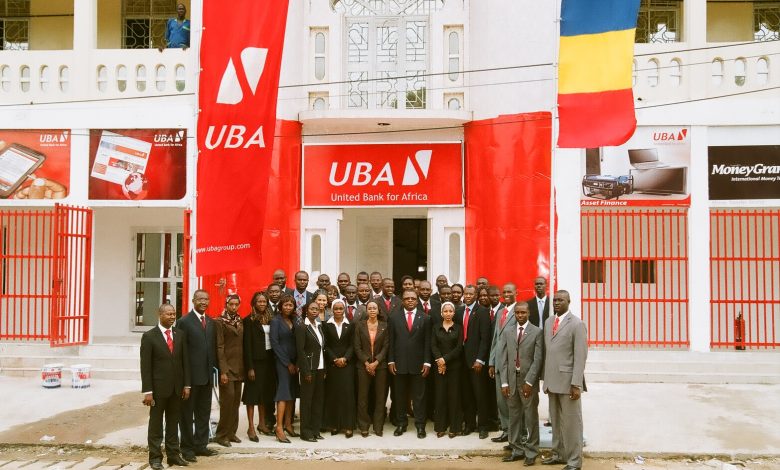How UBA Was Sued, Damaged, and What to Learn as Litigants—The Micoz Bluelink Case and Beyond

By Passman Akpos
Introduction:
In recent months, the United Bank for Africa plc (UBA) has been at the centre of a high-profile lawsuit involving the unlawful restriction of a customer’s domiciliary account. The plaintiff, Micoz Bluelink Enterprise, successfully secured a judgment at the Federal High Court in Abuja, being awarded damages of N30 million and the return of US$163,592, for UBA’s conduct in freezing its account without proper legal justification or notice. This case presents both legal precedent and practical lessons for litigants who obtain judgments against powerful banks
and what steps are necessary to maintain and affirm such judgments, especially in the event of an appeal.
The Facts of the Case
1. Parties:
Plaintiff: Akpasi Oziegbe, trading as Micoz Bluelink Enterprise.
Defendant: United Bank for Africa (UBA) Plc.
2. Cause of Action:
The plaintiff alleged that UBA had frozen its business domiciliary account
an account intended for foreign exchange transactions
with a balance deposited from supply contracts (about US$163,825) without any court order or adequate notice. UBA claimed the funds were flagged as “suspicious” and that it performed a Suspicious Transaction Report (STR) with Nigeria’s financial intelligence unit; that enhanced customer due diligence was requested. The bank also alleged it had to respond to a SWIFT call-back from a correspondent bank.
3. Judgment in the Trial Court:—Justice Peter Lifu of the Federal High Court (Abuja Division) ruled for Micoz Bluelink Enterprise. The key findings included:
UBA breached the banker-customer relationship by restricting and transferring funds without a court order or the customer’s instruction.
The bank failed to provide adequate notice or explanations for its actions.
UBA’s documentary exhibits were defective: the “call-back” request did not cite fraud and was marked only “Possible Duplicate,” insufficient to justify unilateral action.
The court held the bank’s actions were ultra vires (i.e. outside its legal powers), reckless, and a breach of the bank’s fiduciary duty.
Consequential damages were found: business disruption, economic loss, deterioration of value (in consideration of naira depreciation), among others.
4. Judgment Awarded:
N30 million in damages to the plaintiff.
Post‑judgment interest at 10% until full liquidation.
Refund of the withheld US$163,592 in the bank account.
5. UBA’s Defence:
UBA defended itself on grounds that the funds were suspicious, that a report had been filed, and that enhanced documentation was requested. The bank also claimed that the funds were “recalled” pursuant to instructions from correspondent banks in some instances. However, the court found that none of these defences justified unilateral freezing or transfer without the customer’s instruction or court order.
Has the Judgment Been Appealed and Overturned?
So far as has been reported, there is no reliable source confirming that this particular N30 million judgment in FHC/ABJ/CS/1412/2023, Micoz Bluelink vs UBA has been successfully appealed and set aside. All recent reports (as of mid‑August 2025) reflect the trial court judgment only.
That said, there is a related but different headline: “Appeal Court overturns N30m damages against UBA” concerning “Mr Stephen Smart Asime”. If that is the same case or a separate one is not entirely clear from the available sources. That decision reportedly turned on procedural grounds
namely, that the claim was wrongly instituted as a fundamental rights enforcement suit when in fact it was purely civil in character.
Because of overlapping figures (N30m, claim against UBA, account restriction) confusion is understandable. But for purposes of clarity and legal certainty, it is vital for litigants to verify whether their judgment has been appealed, whether the appeal has been determined, and whether it was affirmed or set aside.
The Manipulative Tendencies Observed in UBA’s Conduct
While “manipulative” is a strong word, from the case facts certain tendencies emerge which are of concern to customers and litigants:
Use of vague or deficient internal documentation: For example, calling an action a “call-back” or “Possible Duplicate” rather than clearly stating fraud or breach. This can give the bank a pretext to freeze or recall funds.
Delay or non‑communication: The bank did not adequately inform the customer of the reasons for account restriction or the destination of transferred funds. Lack of transparency.
Reliance on “suspicious transaction” reports and correspondent bank instructions without corresponding legal process (e.g. court order or customer’s instruction). While such internal/bank compliance tools are legitimate, they must still obey law and contract.
Possibility of hiding behind procedural labels, e.g. fundamental rights suits vs civil claims, or using banking regulation/compliance as shield but not ensuring due process. The risk is that litigants may misclassify their actions or misfile to take advantage (or be disadvantaged) by special procedures.
Lessons for Litigants: How to Maintain and Affirm a Judgment
Given UBA (or any bank with deep legal resources) may challenge unfavorable judgments via appeal, stay of execution, etc., here are concrete steps litigants should take to protect their rights and preserve wins:
1. Ensure Proper Cause of Action / Correct Form of Suit
Don’t mislabel: if the case is essentially civil (contract, tort), file it as such. If alleging violation of constitutional rights, fundamental rights, then ensure the facts support that. Misclassification can lead to appeal or overturn on procedural grounds.
Use correct court jurisdiction and procedure from the start, so that on appeal there is no technical defect which can be exploited.
2. Document Everything, Especially Correspondence and Notices
Keep all requests, communications, responses (or silence) from the bank.
Ensure filings and exhibits are properly sworn, verified, and meet admissibility standards.
3. Ensure Evidence Is Solid and Clear
If relying on internal bank documents/exhibits (e.g., “call-backs”, “STR reports”), these must be properly authenticated and show required content (fraud, duplication, etc.) to justify the bank’s action.
If alleging breach of contract, duty, constitution, show what contract terms or legal duties were breached.
4. Seek Interim Enforcement Measures (Stay, Execution, Garnishee, etc.)
Once judgment is delivered, if there’s risk the defendant will not comply, apply for judgment enforcement immediately.
If an appeal is filed, consider whether to apply for a stay of execution, but also whether to resist it (if it’s not properly requested or justified).
5. Monitor the Appeal Process Closely
Be aware of time limits for appeal, filing requirements for notice of appeal, records, transcripts. Missing deadlines can be fatal.
Ensure the trial record is properly compiled and preserved for the appellate court (all necessary exhibits, objections, rulings, etc.).
6. Use Skilled Counsel Experienced in Both Trial and Appellate Practice
A lawyer who understands what will matter on appeal (technical legal issues, procedural points, evidence law) can structure the trial strategy with appeal in mind.
7. Beware Tactics That May Delay or Obscure
Banks may attempt to delay payment, refuse enforcement steps, challenge jurisdiction, or raise preliminary objections in appeal that require judgment setting aside or remitted.
Litigants should anticipate these, be responsive, and be ready to oppose spurious technicalities.
8. Publicity, Transparency, and Pressure
High‑profile cases may benefit from reasonable public attention (media, regulatory bodies) to ensure compliance and guard against opaque maneuvers.
Regulators (e.g. Central Bank, Financial Intelligence Units) may have interest or oversight; involving them or referencing their regulations may strengthen the claim.
9. Prepare for Costs and Punitive Damages
Ensure that claims for costs, interest, damages (general, exemplary) are properly pleaded and evidenced; the judge may award more than just compensatory if the defendant’s conduct warrants.
10. Follow Up After Judgment
Once judgment is obtained, ensure that the defendant is notified for compliance. If payment is delayed, apply for execution and/or garnishee orders or other enforcement remedies.
Check whether any appeal has been filed and oppose any attempts to set aside the judgment except on legitimate grounds.
Broader Implications: Banking, Customer Rights, and Legal Precedent
This case reaffirms that banks cannot ignore contractual, common law, or constitutional obligations when dealing with customers’ funds
even in the name of compliance or regulatory duty.
It underscores the need for clear, transparent internal policies that comply not just with banking regulation but with due process and legal norms.
From a customer rights standpoint, it may embolden other individuals or entities whose accounts have been wrongfully restricted or funds wrongly withheld.
Legally, it may lead to more frequent litigation and demands for effecting rights enforcement when bank‑customer relationships are breached.
Caveats & Points of Uncertainty
As noted, whether this exact judgment has been appealed and overturned is not yet confirmed in the public domain.
Outcomes may differ depending on jurisdiction, exact nature of allegations (fundamental rights vs contract/tort), strength of evidence, and whether proper procedure was followed from the outset.
Even where judgments are affirmed, actual enforcement can be a challenge.
Conclusion
The Micoz Bluelink case (FHC/ABJ/CS/1412/2023) is a vivid example of how a litigant can obtain relief, including significant damages and refund of wrongfully withheld funds, even against a large bank like UBA. But winning in the trial court is only the first step. Without careful legal strategy, good evidence, proper procedure, awareness of appeal processes, and vigorous enforcement, such victories can be undermined.
For any litigant who secures a favourable judgment, the key lesson is: be as robust in defending and enforcing the judgment as you were in obtaining it. Understand both the substantive rights and the procedural rules. Do not leave room for reversal or avoidance. With that discipline, you stand a much better chance of turning court orders into real, lasting relief.





